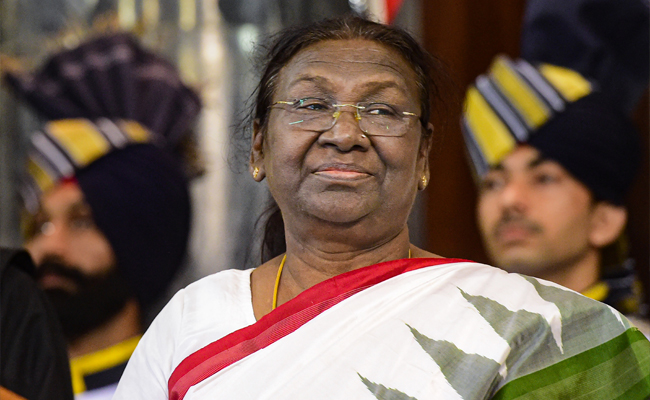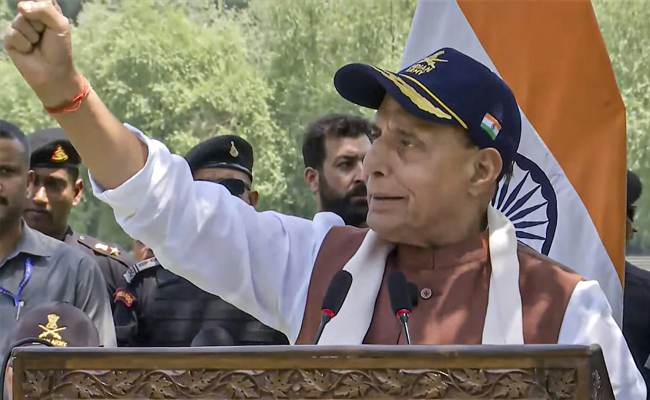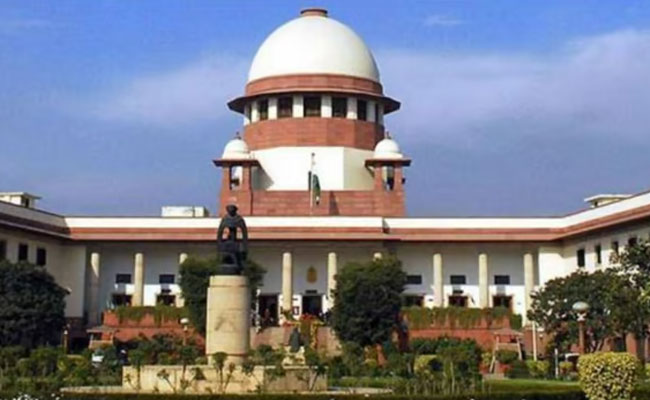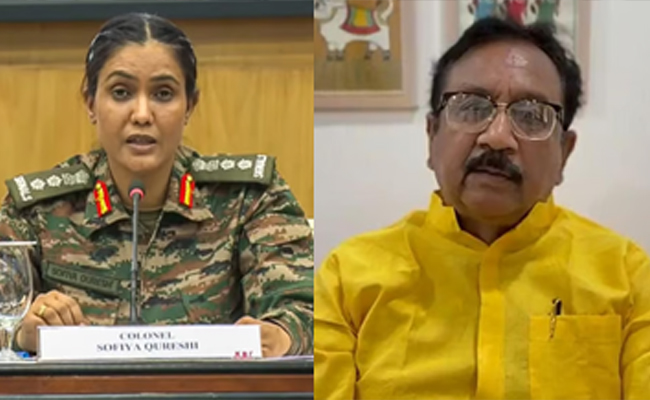London (PTI): A UK-born Indian-origin consultant paediatrician at a hospital in northern England is among those who raised concerns and helped convict a nurse found guilty of killing seven babies by a UK court on Friday.
Dr Ravi Jayaram, from the Countess of Chester Hospital in Chester, said some of those lives could have been saved if his concerns about former nurse colleague Lucy Letby had been heeded and the police alerted sooner.
Letby, 33, was found guilty of the murder of seven newborn babies and also found guilty of seven counts of attempted murder relating to six other babies by a jury at Manchester Crown Court. She will be sentenced at the same court on Monday.
"I do genuinely believe that there are four or five babies who could be going to school now who aren't," Dr Jayaram told ITV News' in a television interview after the verdict.
He told the channel that consultants first began raising concerns after three babies died in June 2015. As more babies collapsed and died, senior medics like him held several meetings with hospital executives to raise their concerns about Letby.
Eventually, it was in April 2017 that the National Health Service (NHS) trust allowed doctors to meet with a police officer.
"The police, after listening to us for less than 10 minutes, realised that this is something that they had to be involved with. I could have punched the air," said Dr Jayaram.
Shortly afterwards, an investigation was launched that would lead to Letby's arrest.
The UK's Crown Prosecution Service (CPS) told the court that Letby used a variety of methods to secretly attack a total of 13 babies in the neonatal ward at the Countess of Chester hospital between 2015 and 2016.
During her trial, which began in October last year, Manchester Crown Court heard that doctors at the hospital began to notice a significant rise in the number of babies who were dying or were unexpectedly collapsing.
The CPS presented evidence of Letby using various methods to attack babies, including the injection of air and insulin into their bloodstream; the infusion of air into their gastrointestinal tract; force feeding an overdose of milk or fluids; impact-type trauma.
Her intention was to kill the babies while deceiving her colleagues into believing there was a natural cause, the jury was told.
"Lucy Letby sought to deceive her colleagues and pass off the harm she caused as nothing more than a worsening of each baby's existing vulnerability. In her hands, innocuous substances like air, milk, fluids or medication like insulin would become lethal. She perverted her learning and weaponised her craft to inflict harm, grief and death," said Pascale Jones of the CPS.
"Time and again, she harmed babies, in an environment which should have been safe for them and their families. Her attacks were a complete betrayal of the trust placed in her," he said.
Letby was first arrested in July 2018 and subsequently charged in November 2020.
Jonathan Storer, Chief Crown Prosecutor for CPS Mersey-Cheshire, added: "This is an utterly horrifying case. Like everyone who followed the trial, I have been appalled by Letby's callous crimes.
"To the families of the victims I hope your unimaginable suffering is eased in some way by the verdicts. Our thoughts remain with you."
Among the mountain of evidence presented in court were many handwritten notes discovered by police during their investigation.
They included phrases such as: "I killed them on purpose because I'm not good enough to care for them"; "I am evil I did this"; and "today is your birthday and you are not here and I am so sorry for that". These notes gave an insight into Letby's mindset following her attacks, the court was told.
The CPS was able to show the jury that Letby was the one common denominator in the series of deaths and sudden collapses in the neonatal unit.
Besides, medical documents featuring falsified notes made by the nurse to hide her involvement and social media activity to deceive her colleagues were among the other pieces of evidence presented in court.
Letby was found not guilty of two charges of attempted murder and the jury, many of them visibly distraught at the tough case, was unable to reach verdicts on six further counts of attempted murder.
Through the trial, Letby claimed that she was being wrongly accused to cover hospital failings.
The Cheshire Constabulary, which investigated the case, said it had been one of the toughest cases for them.
"The details of this case are truly crushing. A trained nurse responsible for caring and protecting tiny, premature babies; a person who was in a position of trust, she abused that trust in the most unthinkable way," said Detective Chief Inspector Nicola Evans, the Deputy Senior Investigating Officer.
"I cannot begin to understand what the families have had to endure over the past seven or eight years but we have been humbled by their composure and resilience throughout this whole process," she said.
Let the Truth be known. If you read VB and like VB, please be a VB Supporter and Help us deliver the Truth to one and all.
New Delhi (PTI): President Droupadi Murmu has posed 14 crucial questions to the Supreme Court over its April 8 verdict that fixed timelines for governors and the President to act on bills passed by state assemblies.
Exercising her power under the rarely used Article 143 (1), President Murmu said in the present circumstances, it appears that the following questions of law have arisen and they are of such nature and public importance that it is expedient to obtain the opinion of the Supreme Court of India thereon.
Article 143 (1) of the Constitution deals with the power of the President to consult the Supreme Court.
The provision says, "If at any time it appears to the President that a question of law or fact has arisen, or is likely to arise, which is of such a nature and of such public importance that it is expedient to obtain the opinion of the Supreme Court upon it, he may refer the question to that Court for consideration and the Court may, after such hearing as it thinks fit, report to the President its opinion thereon".
The questions posed by the President are:
* What are the constitutional options before a governor when a bill is presented to him under Article 200 of the Constitution of India?
* Is the governor bound by the aid and advice tendered by the Council of Ministers while exercising all the options available with him when a bill is presented before him under Article 200 of the Constitution of India?
* Is the exercise of constitutional discretion by the governor under Article 200 of the Constitution of India justiciable?
* Is Article 361 of the Constitution of India an absolute bar to judicial review in relation to the actions of a governor under Article 200 of the Constitution of India?
* In the absence of a constitutionally prescribed time limit and the manner of exercise of powers by the governor, can timelines be imposed and the manner of exercise be prescribed through judicial orders for the exercise of all powers under Article 200 of the Constitution of India by the governor?
* Is the exercise of constitutional discretion by the President under Article 201 of the Constitution of India justiciable?
* In the absence of a constitutionally prescribed timeline and the manner of exercise of powers by the President, can timelines be imposed and the manner of exercise be prescribed through judicial orders for the exercise of discretion by the President under Article 201 of the Constitution of India?
* In light of the constitutional scheme governing the powers of the President, is the President required to seek advice of the Supreme Court by way of a reference under Article 143 of the Constitution of India and take the opinion of the Supreme Court when the governor reserves a bill for the President's assent or otherwise?
* Are the decisions of the governor and the President under Article 200 and Article 201 of the Constitution of India, respectively, justiciable at a stage anterior into the law coming into force? Is it permissible for the courts to undertake judicial adjudication over the contents of a bill, in any manner, before it becomes law?
* Can the exercise of constitutional powers and the orders of/by the President/ governor be substituted in any manner under Article 142 of the Constitution of India?
* Is a law made by the state legislature a law in force without the assent of the governor granted under Article 200 of the Constitution of India?
* In view of the proviso to Article 145(3) of the Constitution of India, is it not mandatory for any bench of this court to first decide as to whether the question involved in the proceedings before it is of such a nature which involves substantial questions of law as to the interpretation of Constitution and to refer it to a bench of minimum five judges?
* ... (Are) the powers of the Supreme Court under Article 142 of the Constitution of India limited to matters of procedural law or Article 142 of the Constitution of India extends to issuing directions/passing orders which are contrary to or inconsistent with existing substantive or procedural provisions of the Constitution or law in force?
* Does the Constitution bar any other jurisdiction of the Supreme Court to resolve disputes between the Union government and the state governments except by way of a suit under Article 131 of the Constitution of India?
The Supreme Court's April 8 verdict set a timeline for all governors to act on the bills passed by the state assemblies and ruled that a governor does not possess any discretion in exercise of functions under Article 200 of the Constitution in respect to any bill presented to them and must mandatorily abide by the advice tendered by the council of ministers.
It said the state governments can directly approach the Supreme Court if the President withholds assent to a bill sent by a governor for consideration.
A bench of Justices J B Pardiwala and R Mahadevan said reserving a bill on grounds such as "personal dissatisfaction of the governor, political expediency or any other extraneous or irrelevant considerations" is strictly impermissible by the Constitution and would be liable to be set aside forthwith on that ground alone.




